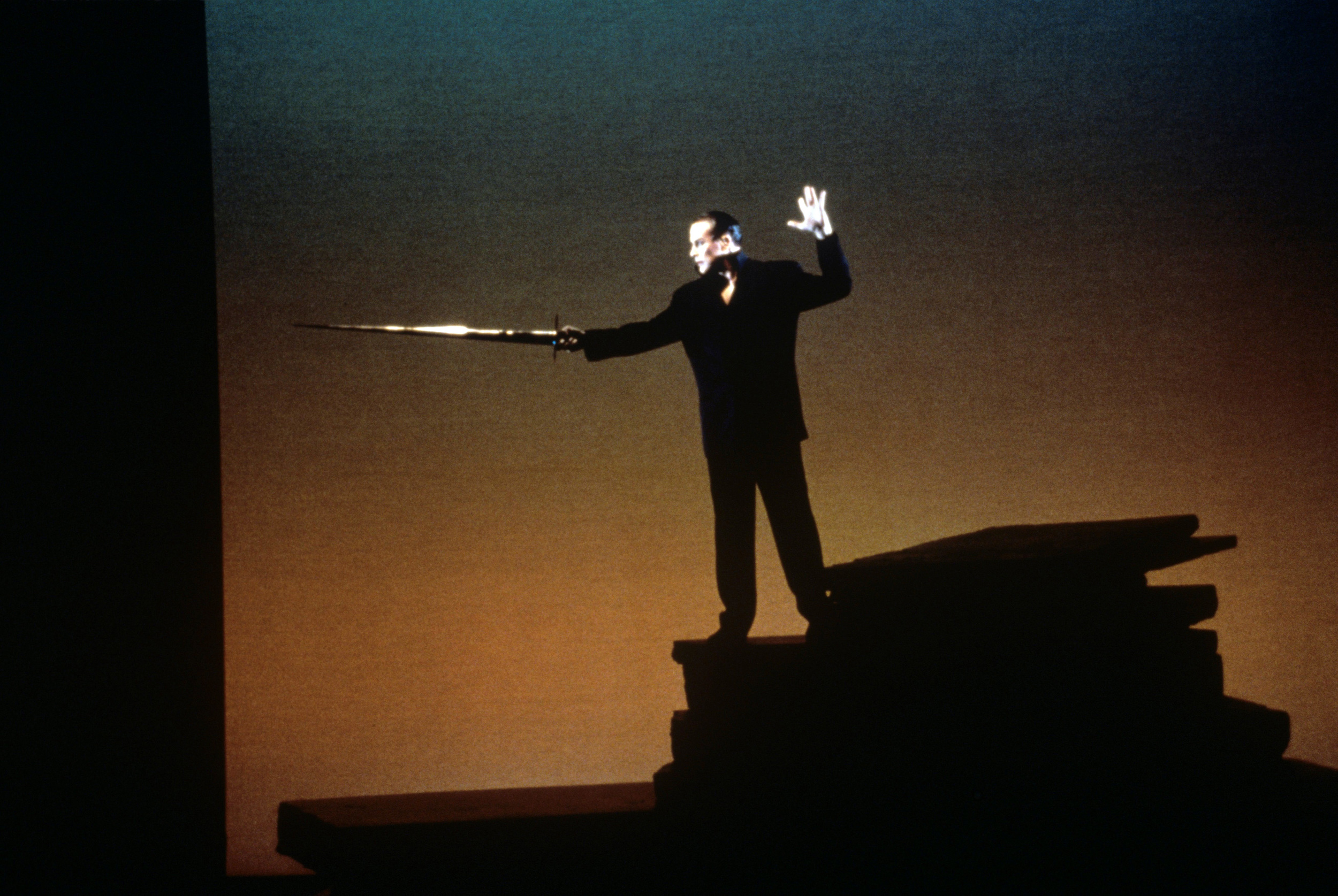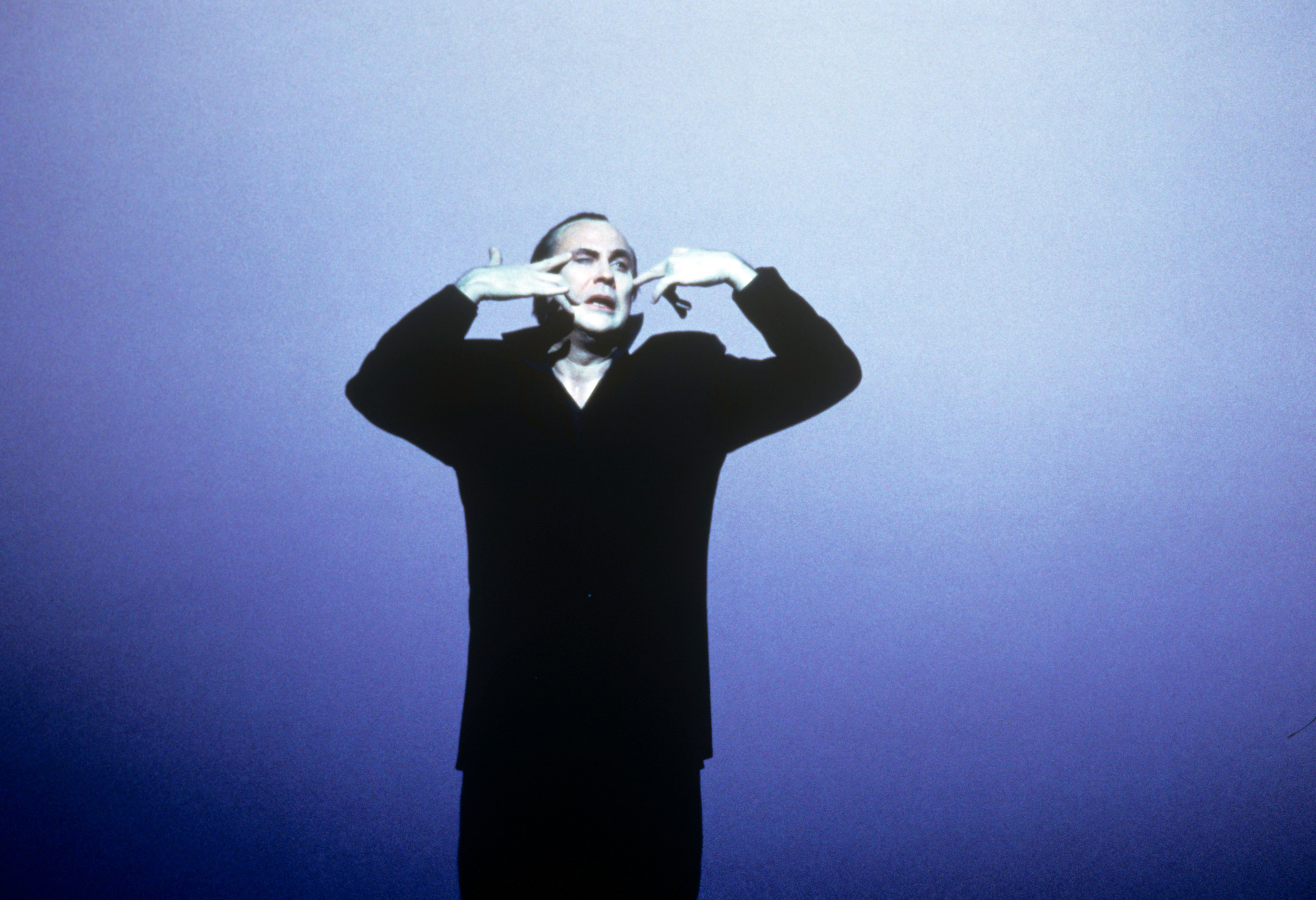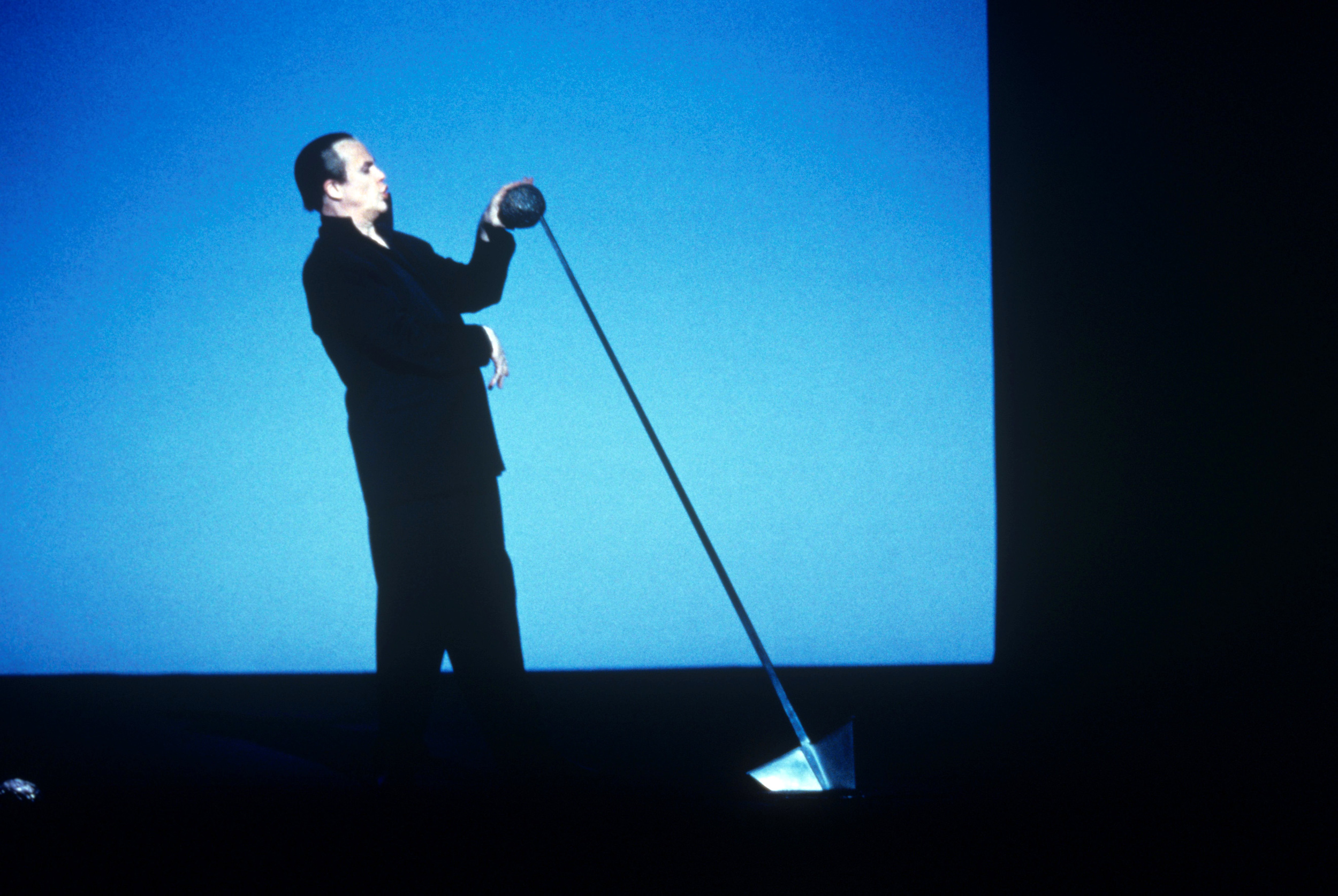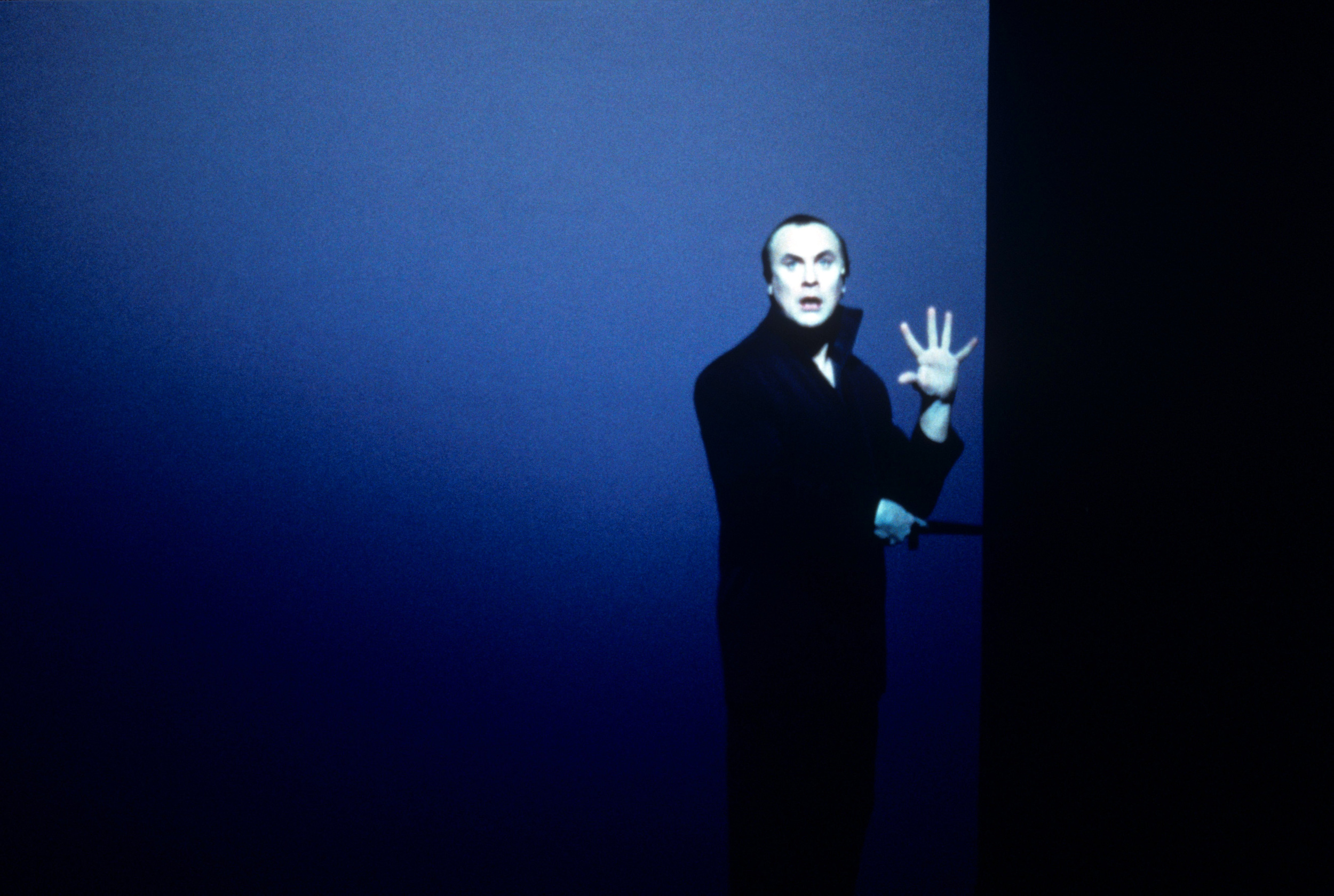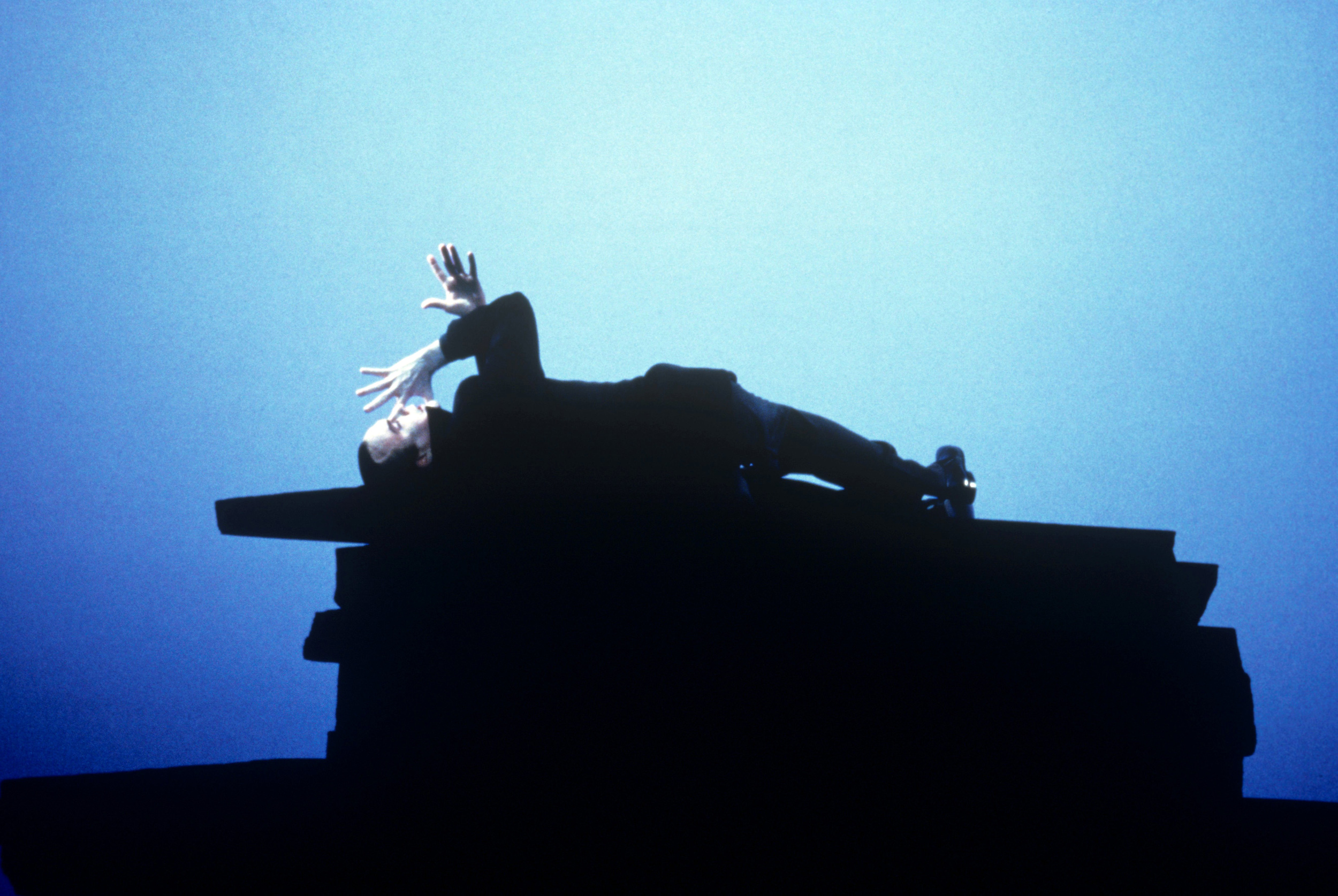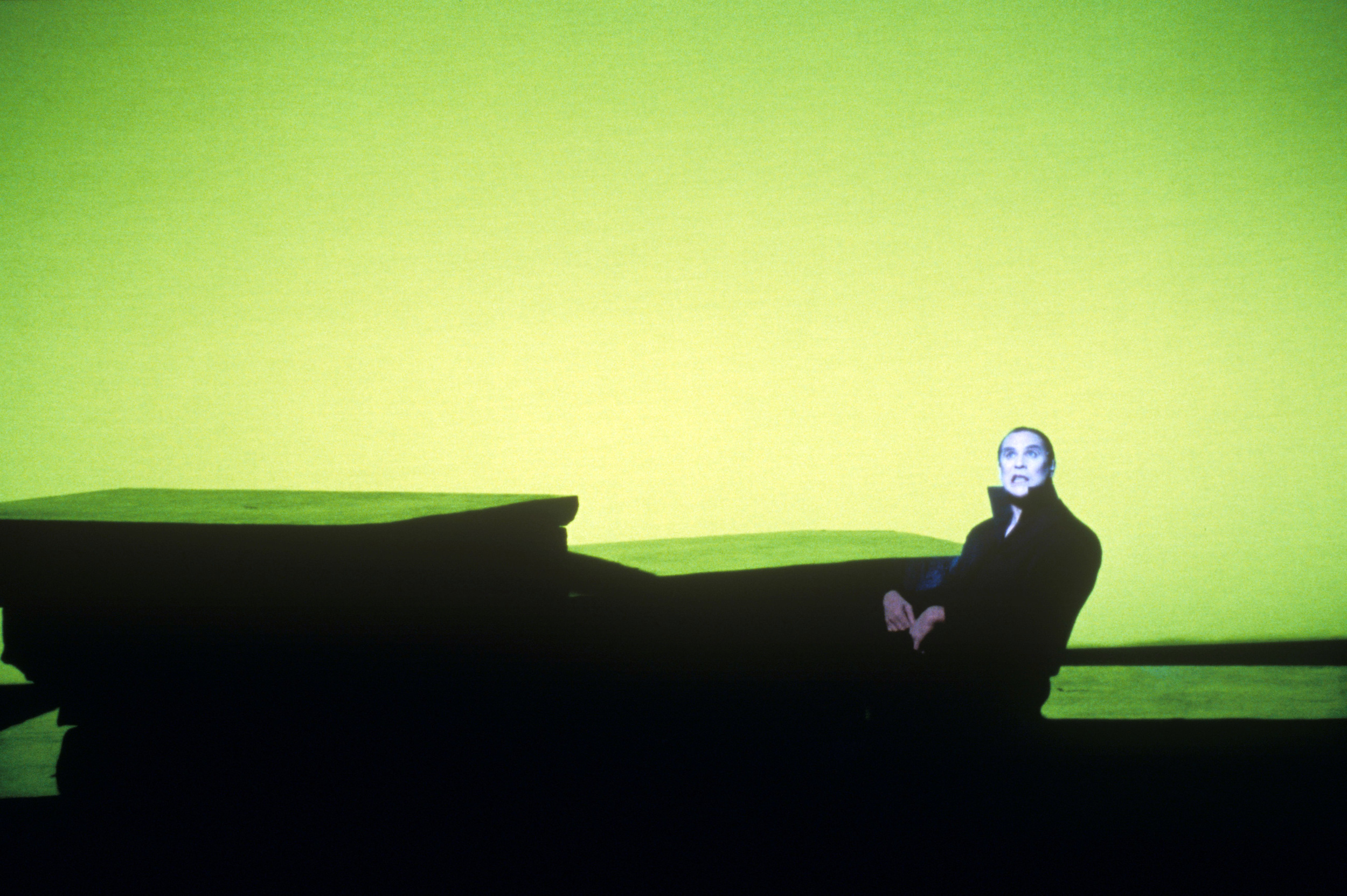HAMLET: a monologue
Based on the play by William Shakespeare
Adaptation by Robert Wilson and Wolfgang Wiens
Music by Hans Peter Kuhn
Performed by Robert Wilson
Premiered on May 24, 1995 at the Alley Theater, Houston, Texas
Subsequent performances at the Venice Biennale, Lincoln Center, MC 93 Bobigny (Festival d’Automne), Teatro Central Seville, Hebbel Theater Berlin, Piccolo Teatro di Milano, Teatr Narodowy Warsaw, Holland Festival, Japan Theater Olympics and several others
Robert Wilson said that playing Hamlet was like performing from a diary or a journal. The way he identified with it, with respect to the movement, the color of voice, in the speaking of the text and the associations of the text, for him it felt very personal. Shakespeare's text, according to Wilson, is "this indestructible rock." In rethinking the text as a monologue, Wilson found a way for Hamlet to speak the text as a flashback: "It started just before he dies, and ended with his last speech. This one second before he dies, one sees the whole play, the whole life. One can see him seeing the situation, so you can see him in many different ways, as a child, a boy; reflecting on an older person, listening to an older person, being an older person; being a woman, being a man..."
“People say that I’m not interested in words so some years ago I said, ‘Okay, I’ll do Hamlet.’ It was a big challenge and I think that often it’s important to take that one. Hamlet may be the greatest play ever to have been written, the greatest text ever written. Initially, I had thought to do it with a group of actors but eventuallyI decided I would do it myself, as a challenge: first, because it is a classical text, and then because it’s a work where the concentration is primarily on the text, in addition to the images. I did it as a monologue, a kind of dream memory of the entire play. I restructured the text, beginning seconds before Hamlet dies. So the work is seen as a flashback, with Hamlet speaking the text of Ophelia, Gertrude and all the other characters. The play really takes place in Hamlet’s mind. It begins with his last speech and ends with his last speech.”
“Robert Wilson remains, along with Samuel Beckett, one of the two most influential theater artists of the second half of this century. And here we have him, as a man and an artist, doing the most modern and contemporary part there is, a work so open to the particular talent and eccentricity and mind that Wilson has.”


